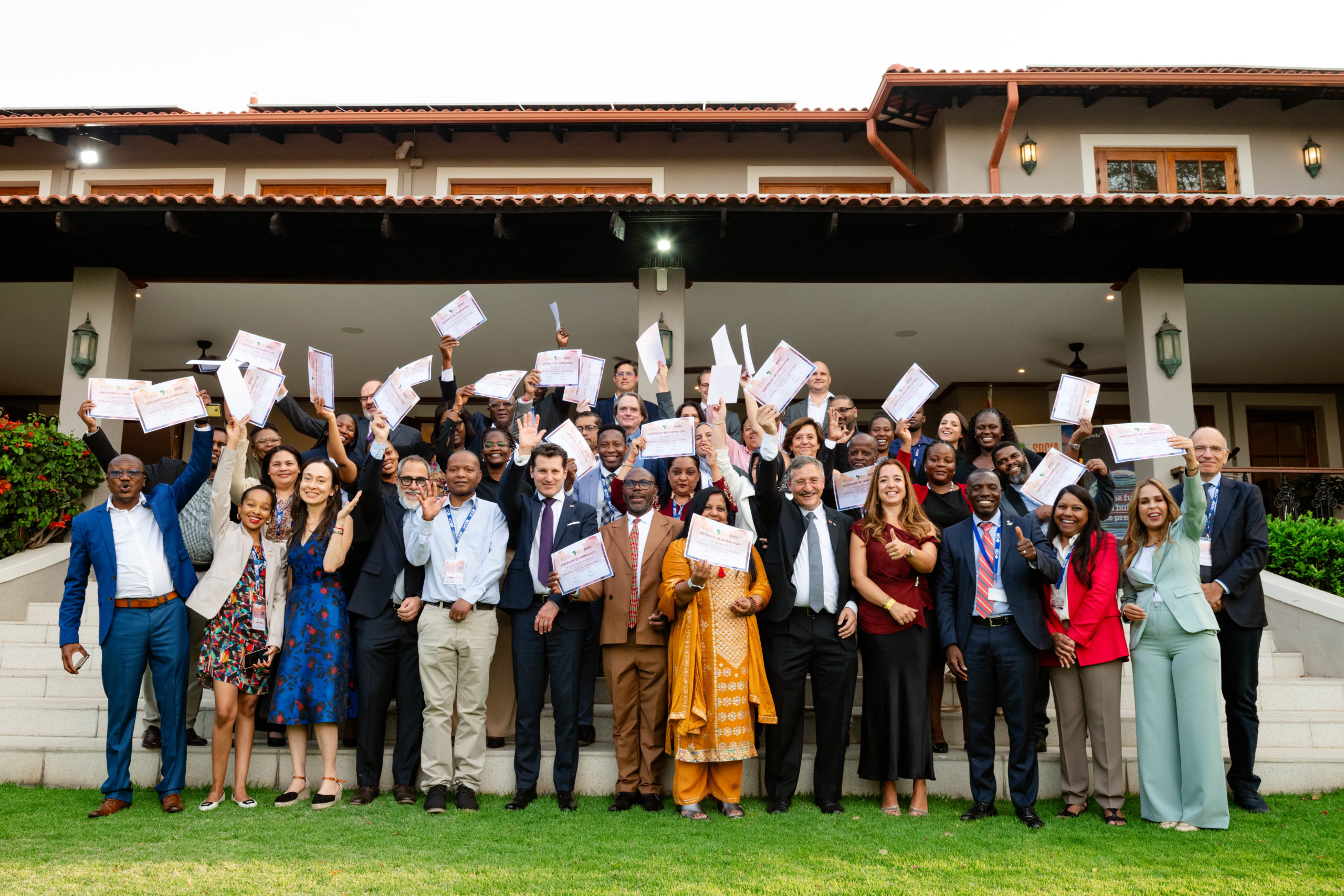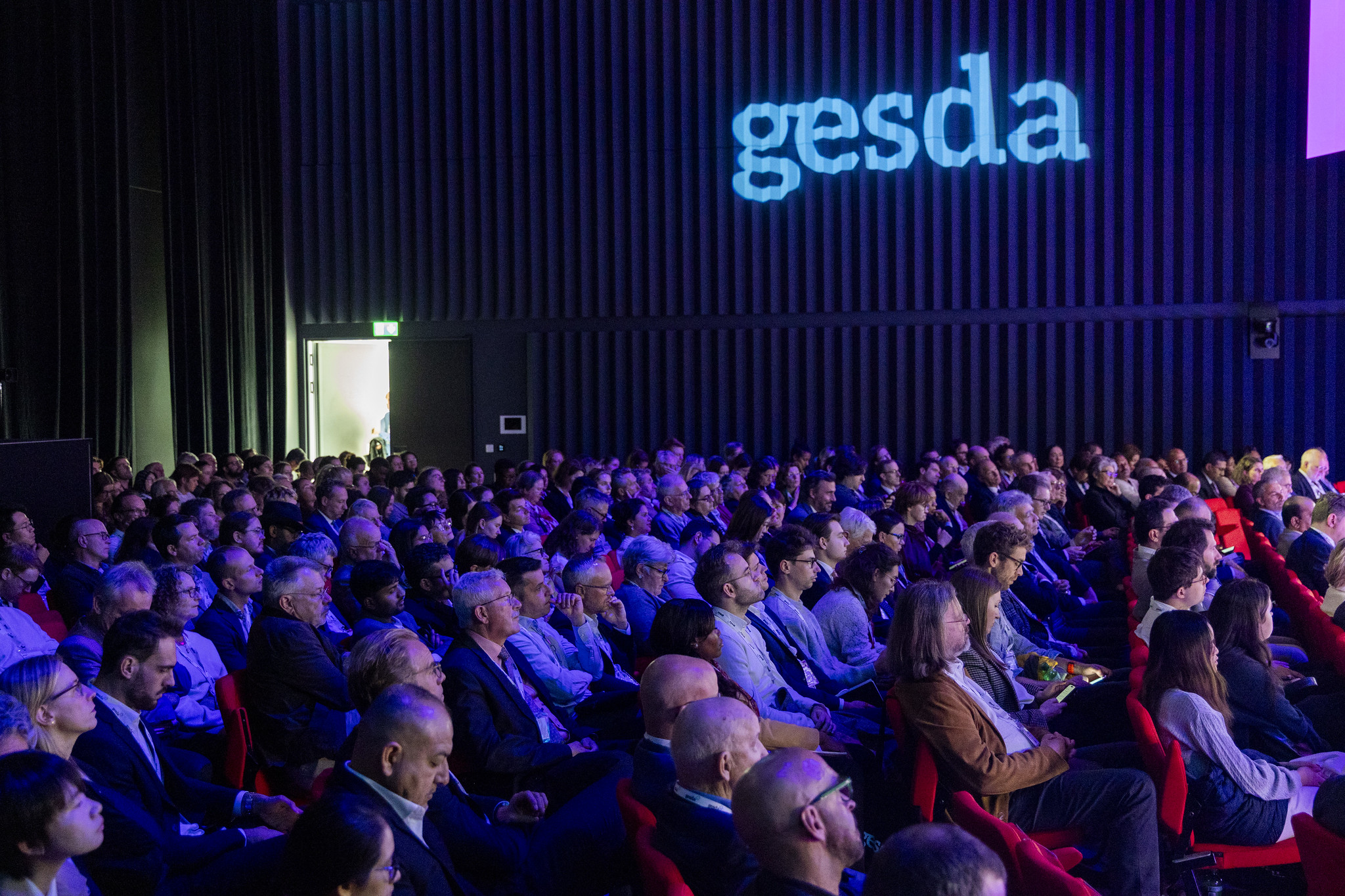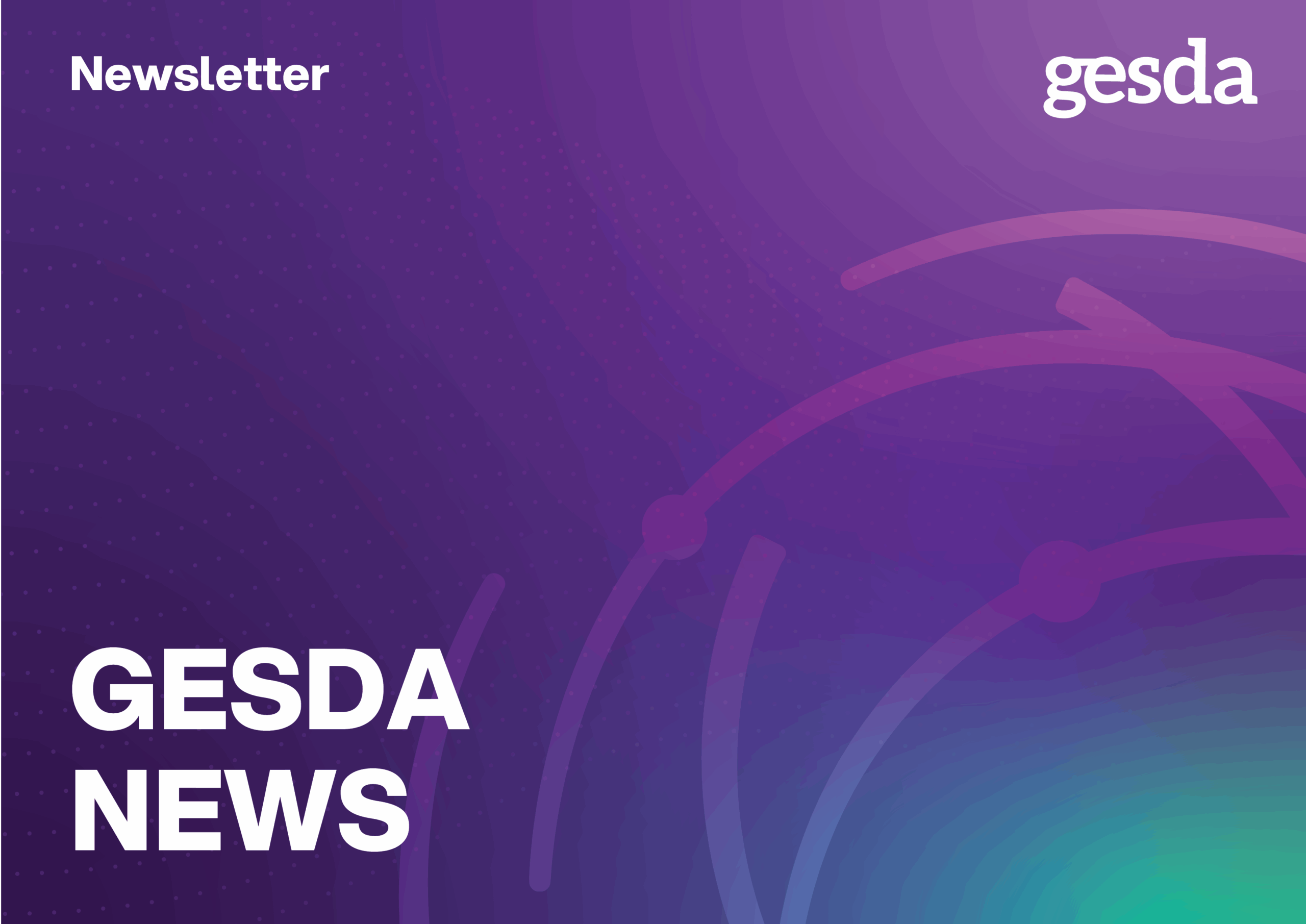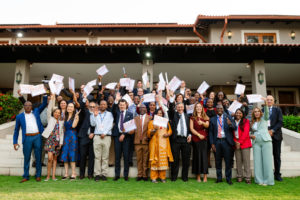
From 18 to 22 September 2025, Pretoria hosted Africa’s first Anticipatory Leadership Week (ALW) as an official side‑event of the G20 Research and Innovation Ministerial. Co‑hosted by GESDA and the Science Diplomacy Capital for Africa (SDCfA) and co-created with more than twenty partners from across the continent, the programme asked a vital question: How do we lead in a world defined by accelerating science and geopolitical fragmentation? Forty participants—policymakers, scientists, diplomats, futurists and innovators from fourteen countries—took up the challenge to explore the implications of emergent science and technology for Africa’s future and tested tools for anticipatory leadership.
Exploring Breakthrough Science Through an African Lens
“Given the emerging global challenges that we face, there is a key role for international cooperation in providing innovative solutions. More than ever, the focus is not only on how we use these for the global good, but also on the opportunities to work together to anticipate evolving opportunities and challenges. The discussions at the ALW are designed to bridge local perspectives with global conversations shaping the impact of technology on societies.’, said Dr Mlungisi Cele, Director-General of Science, Technology and Innovation, in his opening address. Daan du Toit, Deputy Director-General for International Cooperation at the Department of Science, Technology and Innovation of South Africa, emphasised Africa’s science and innovation priorities, aligning with the African Union’s Science, Technology and Innovation Strategy for Africa 2034.
Participants began their journey with an introduction to science anticipation and learned how “what’s cooking in labs” 5–10–25 years from now can shape policy today. Professor Michael Hengartner, President of the ETH Board and Chair of GESDA’s Academic Forum, led a deep dive into the GESDA Science Breakthrough Radar®, guiding participants through the Radar’s methodology before South African experts brought the science home. Prof. Francesco Petruccione, director of the South African Institute of Theoretical and Computational Sciences, explored the promise and opportunities of quantum computing for Africa, Dr. Mubeen Goolam from the University of Cape Town walked participants through advances in neurotechnology and brain organoids and the need to update health policy and regulation in light of those advances, and Dr. Romaric Odoulami from the African Climate Development Initiative unpacked the complexities and dilemmas surrounding climate geoengineering for the African continent and surfaced the need for a multilateral framework to govern climate geo‑engineering.
The ALW also highlighted science diplomacy in practice through a presentation of the Square Kilometre Array Observatory (SKAO) – a global collaboration among 16 countries spread across five continents that is building the world’s two largest radio telescopes – one in South Africa and one in Australia.The South African Institute of International Affairs (SAIIA) wove futures thinking into the discussions, while a session on African Indigenous Knowledge Systems was curated and led by the Department of Science, Technology and Innovation, CSIR, Rhodes University and the National Advisory Council on Innovation, demonstrating how global breakthroughs must be grounded in local contexts.
Immersive Simulations
The ALW featured no traditional lectures – participants were immersed in GESDA’s anticipatory science diplomacy scenarios where their decisions had consequences. In one exercise, participants were transported to 2045 into a future where neurotechnology is widespread and a massive ransomware attack has compromised brain implants, plunging nations into chaos. Delegates role‑played as ministers, neuroscientists, CEOs, ethicists and human rights leaders, debating emergency responses, ethical guidelines and equitable distribution of neurotechnology innovation. The scenario illustrated how seemingly remote technologies raise urgent questions about privacy, autonomy and inequality that must be tackled now.
Maria Stella Nyalo, programe officer at the African Union Development Agency (AUDA-NEPAD), remarked ‘The ALW was eye opening and resonated with my work in the science, technology and innovation ecosystem on the African continent. I believe that this programme is critical to the work we do at AUDA-NEPAD as we engage with policy makers on a daily basis”.
The Anticipatory Governance Trial offered a provocative twist: a fictional court in 2035 took citizens of 2025 to task for failing to anticipate. The prosecution argued that today’s leaders ignored scientific signals and allowed crises to fester. The defence contended that anticipation is an emerging practice and called for shared responsibility. As jurors, participants deliberated on accountability, reminding everyone that failing to anticipate has real costs.
By stepping into different roles —researchers, diplomats, industry leaders, activists—participants experienced first‑hand how cross‑sector collaboration is no longer optional. Experiential learning like this surfaces hidden assumptions, creates a safe space to grapple with difficult trade‑offs and opens new pathways for action.
One final highlight was the Quantum Theatre Play, produced by the Embassy of Switzerland in Pretoria and inspired by GESDA’s Quantum Diplomacy Game. Actors personified qubits, diplomats and citizens, dramatizing a fictional crisis in which quantum computing threatens data sovereignty —forcing the audience to weigh ethics against innovation. The play sparked lively discussions about equitable access to quantum resources and the risk of technological monopolies.
Key Takeaways for Africa’s Future
Anticipation is not a luxury
Throughout the week, a common refrain emerged: failure to anticipate means letting others define your future. Participants noted that Africa cannot afford to be a passive recipient of technological change; it must actively forecast, plan and advocate. This sentiment echoes GESDA’s message that anticipatory governance —planning ahead to mitigate risks while maximising benefits— is critical for peacebuilding and conflict prevention.
Experiential learning matters
Simulations and storytelling proved powerful. They surfaced hidden assumptions, built empathy across disciplines and exposed participants to the messy reality of multilateral decision‑making. Immersive exercises like the Quantum Theatre Play and the 2045 brain‑implant crisis reminded participants that ethical and geopolitical challenges often come wrapped in unexpected narratives.
Cross‑sector fluency es essential
The ALW underscored that no single sector holds all the answers. Effective anticipatory leadership requires fluency across science, diplomacy, industry and society. Voices from the Global South must be amplified in shaping norms and frameworks for emerging technologies. As participants discovered, inclusive governance strengthens legitimacy and creates more equitable outcomes.
Dr. Jacob Medupe from the South African Parliament reflected: ‘This programme has given me a completely different outlook on how to approach the future and plan for the technological evolution.’
Looking Ahead
GESDA will continue the engagement with the participating institutions, including the integration of anticipatory science diplomacy games in the South African Diplomatic Academy, regional science anticipation exercises with the National Innovation Council (NACI) and embedding anticipatory modules at leading South African universities such as University of Pretoria and University of Cape Town.
In 2025, Anticipatory Leadership Weeks will be hosted in Istanbul, Madrid, Pretoria, San José and Singapore, each co‑created with regional partners to address local priorities. By expanding its community of practice —especially in Africa and the Global South— GESDA aims to embed anticipatory leadership into institutions worldwide.
‘The South Africa Anticipatory Leadership Week was a powerful demonstration that the future is not something abstract that happens to us; it is something we co‑create today. Anticipatory science diplomacy is a call to rethink how science and diplomacy interact. Only by understanding scientific trends early and weaving them into diplomatic efforts we will collectively address global challenges, said Dr. Marga Gual Soler, Head of Science Diplomacy Capacity Building at GESDA overseeing the programme.
By fostering interdisciplinary dialogue across science, technology and international governance, GESDA’s approach bridges the gap between cutting‑edge innovation and the policy frameworks needed to harness it for the common good and translate their awareness into practical tools. In other words, anticipation becomes a skill as much as a mindset, empowering decision‑makers to act rather than react and forging a new kind of leadership practice. Participants left Pretoria with a shared conviction: that anticipating together is essential for crafting an inclusive and sustainable African future. Is it time to use the future to build the present.



